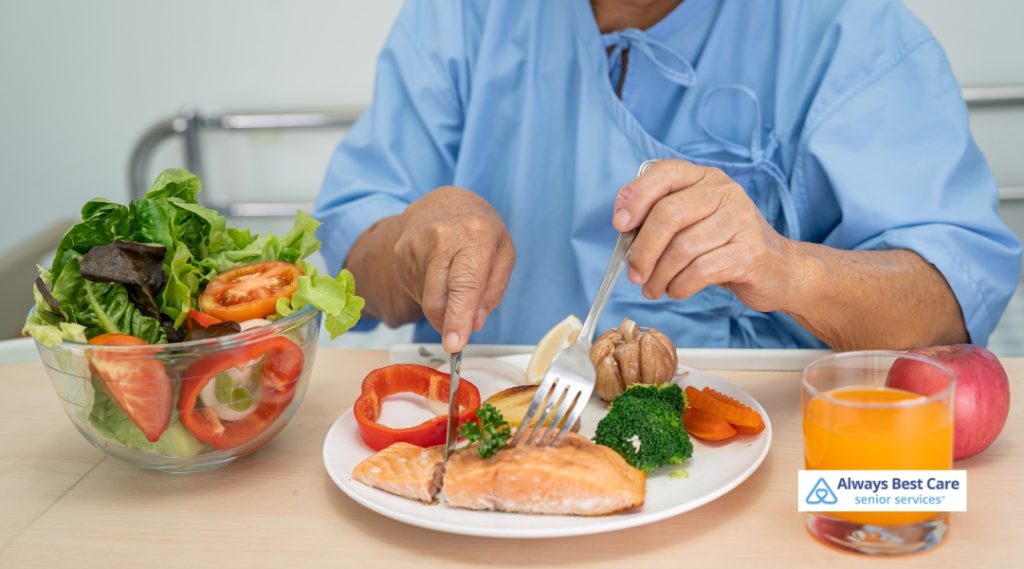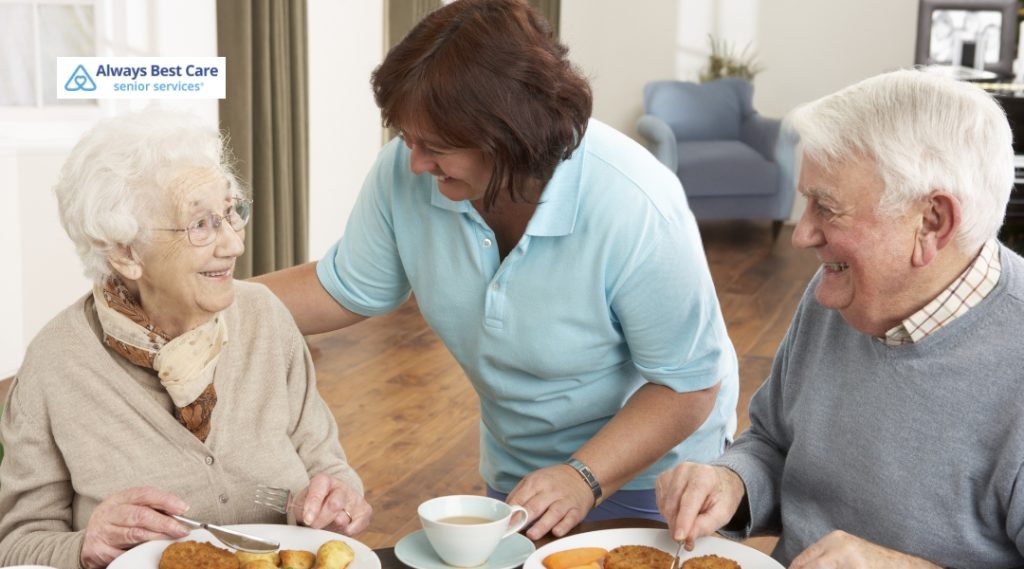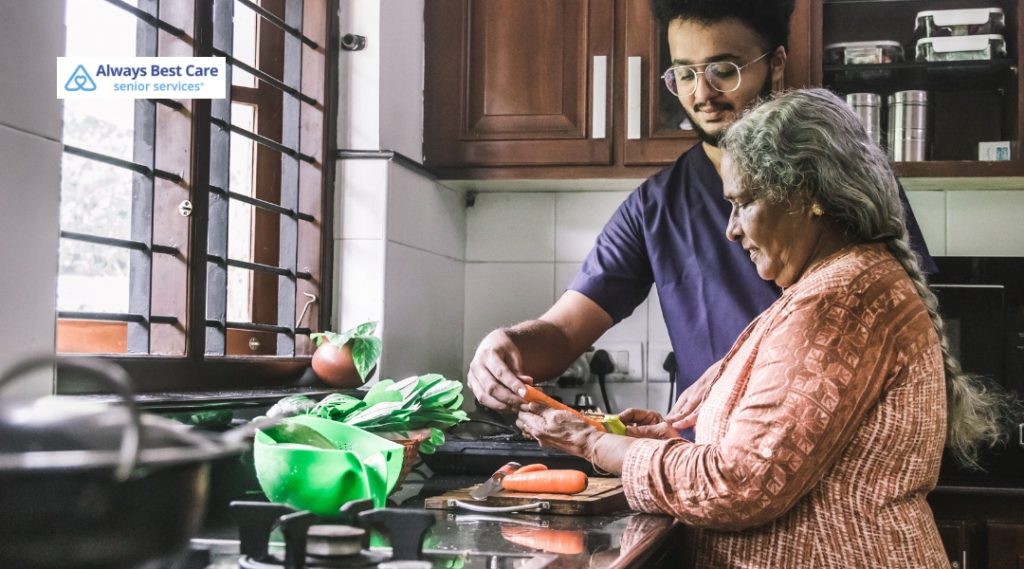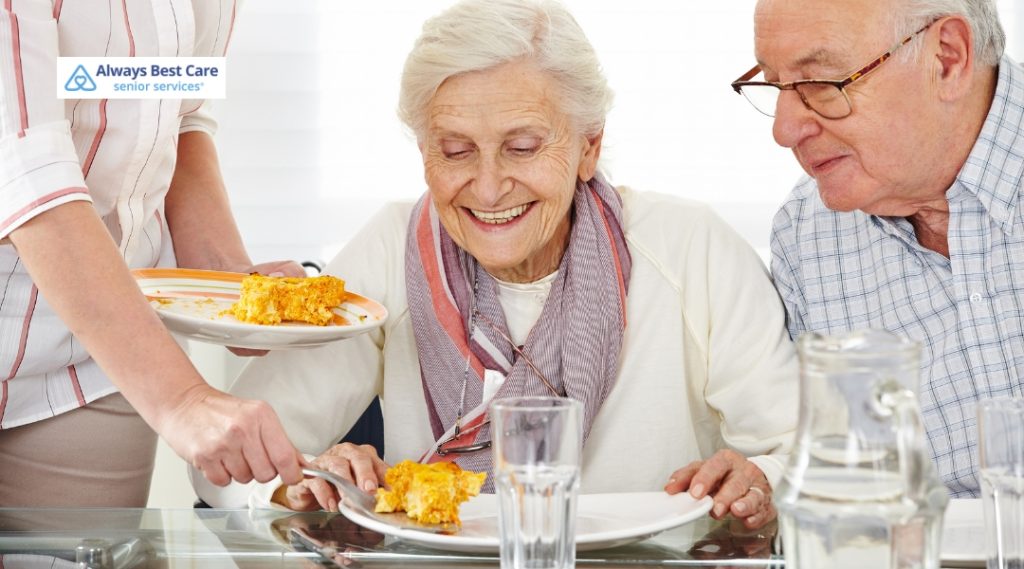Encouraging Healthy Eating: How to Boost Your Senior’s Appetite in Princeton, NJ

Getting our senior loved ones excited about mealtime isn’t always a walk in the park. Changes that come with age—like altered taste buds or dental troubles—can throw off their appetite big time. And when eating loses its spark, so can their strength and independence.
But cheer up! There are plenty of ways to jazz up those meals and help seniors enjoy food once more without turning everything upside down.
At Always Best Care of Princeton, we know that keeping seniors well-nourished goes beyond just filling plates; it’s about bringing joy back into the kitchen and dining table alike.
Let’s look at some easy-to-follow tips for boosting your loved one’s appetite right here in town.
What you will learn:
- The most common reasons why seniors may experience a loss of appetite.
- Creative and practical ways to make meals more appealing and enjoyable for seniors.
- Strategies for encouraging healthy eating habits.
- Tips for involving seniors in meal planning and preparation to rekindle their interest in food and support their independence.
Table of Contents
Understanding Why Appetite Dips Happen
Before tackling the issue head-on, it pays off to understand what’s causing poor appetite among seniors.
A few usual suspects include:
- Medication side effects, like dry mouth or nausea.
- Trouble chewing or swallowing due to dental issues.
- Loss of taste and smell sensations.
- Feelings of loneliness or even grief knocking on the door.
- Chronic illnesses quietly stealing away interest in food.

How to Make Meals More Appealing for Seniors
You’ve probably heard it before: we eat first with our eyes! Seniors tend to respond better when meals look colorful and inviting:
- Add vibrant fruits and veggies bursting with color.
- Use fresh herbs and spices (say goodbye to bland!) without loading on salt.
- Serve dishes on bright plates that lift the mood.
- Create a cozy atmosphere—soft lighting plus mellow tunes set just right.
Smaller Bites, More Often
Big plates piled high might be too daunting; breaking up meals into smaller portions often helps:
- Offer three small meals throughout the day instead of fewer large ones.
- Include two or three nutritious snacks such as creamy yogurt, nuts, smoothies or cheese.
- Focus on calorie-rich but light foods so energy doesn’t run low.

The Social Side: Eat Together When You Can!
Eating alone can zap motivation faster than you’d think; dining is often best enjoyed company-wise.
Try sharing at least one meal weekly if possible; family gatherings really spice things up!
If you’re swamped during weekdays, maybe friends or caregivers can join in occasionally, too?
This social boost goes a long way toward improving their relationship with food.
Easy-on-the-Mouth Foods That Seniors Love
Chewing struggles shouldn’t turn dinners into battles at all costs.
Soft options like scrambled eggs fluffier than clouds, mashed potatoes creamy enough for smiles, and warming bowls of soup that slide down smooth all make life easier around mealtime.
Don’t forget regular dentist visits to ensure dentures fit well and any discomfort gets taken care of!

Get Creative & Plan Ahead
A bit of prep work makes meal planning stress-free for everyone involved!
Involving your senior loved one while choosing menus helps them feel part of something exciting instead of being passive recipients. Switching things up by adding new recipes along favorite comfort foods reignites enthusiasm at every forkful.
FAQ
Q: What if my parent refuses most foods despite trying everything?
A: It happens sometimes! Try different food temperatures (cold vs. hot), flavors (sweet/savory), textures, plus social encouragement during mealtimes—they may eventually warm up over time.
Q: Are nutritional supplements necessary for older adults struggling with poor appetite?
A: Supplements might help, but should complement, not replace, a balanced diet after consulting health pros locally who know their stuff firsthand.
Q: Can hydration impact an older adult’s desire to eat more?
A: Absolutely! Staying hydrated boosts energy levels, which naturally encourages snacking/eating comfortably throughout day-long periods.

Schedule a Complimentary Consultation at Always Best Care of Princeton!
If your aging loved one is struggling with appetite loss or needs support with daily routines, contact Always Best Care of Princeton at (609) 455-2886 to schedule a care consultation. Our compassionate caregivers are here to support health, wellness, and independence—starting right at the kitchen table.





